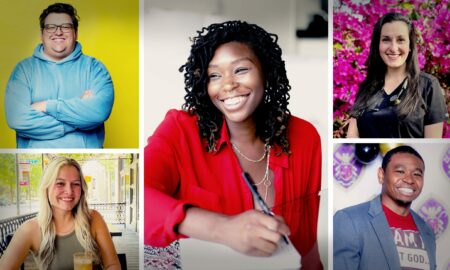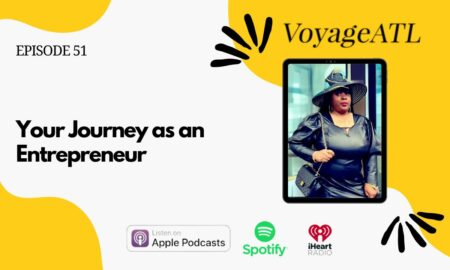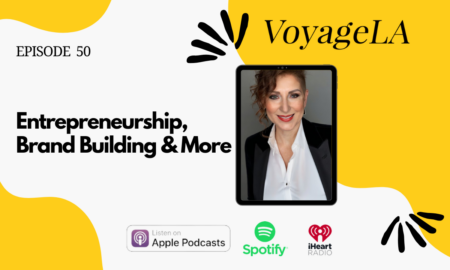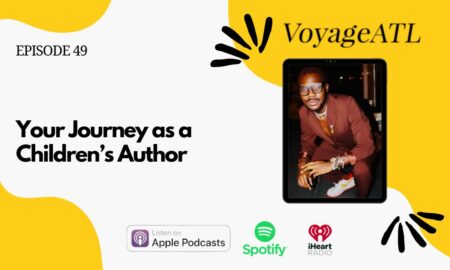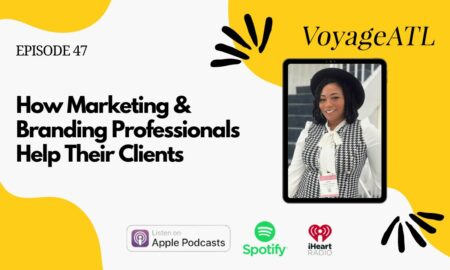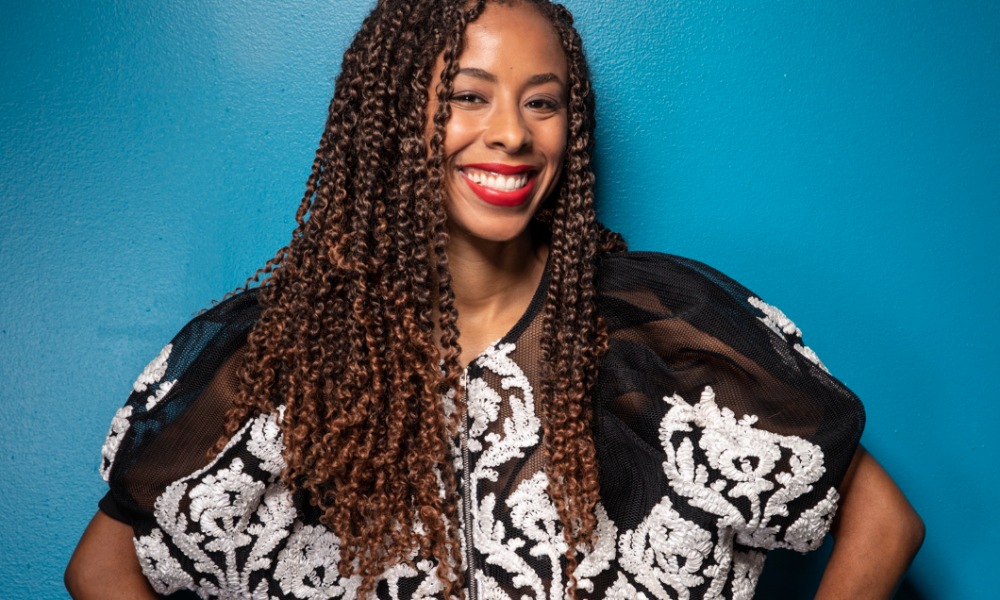

Today we’d like to introduce you to India Hayes.
So, before we jump into specific questions about what you do, why don’t you give us some details about you and your story.
Hello there! I am the co-founder of Mini City Atlanta and an all-around tech innovator for social good. I started my journey as a problem solver early on, I have been volunteering domestically and internationally for over a decade. Most of my efforts in volunteerism, whether it’s from the role of an artist, designer, advocate or tech innovator, are almost always rooted in a sense of community and family. That is probably because my family instilled so much of the desire to want to give back at an early age. I was attending conferences centered around human rights, farm workers rights, closing disparity gaps for people of color probably before I even had a strong sense of what some of the disparities truly meant. I am talking 7 or 8 years old, being dragged along by my parents, to these phenomenal events.
I think it must have stuck with me, the sense of giving and family because I began volunteering primarily as an outlet when I arrived in Atlanta to feel connected to something. I founded a group I called the Duty of Design because I felt it was the duty of designers (I was a recent SCAD Graphic Design grad at the time) to give back to non-profit organizations that needed sleek campaigns to help usher in awareness. While a solid idea, the business model was horrible and I simply found more joy out of assisting non-profits without the pressure of the brand I created. Still, the idea of design for social good stuck and I found myself once again amongst friends seeking to solve problems. I worked with clean water non-profit, finally joining their board and becoming Chair for a few years. I developed tech solutions to bring clean water to thousands of individuals in Central America; I utilized the same energy I put into design efforts to garner sponsorships for tech hardware. Even better, I developed some strong friendships and that sense of family again.
By 2017, I had founded Mini City which really arose from a community-based hackathon and accelerator hosted by Goodie Nation. I saw a panel the founders, Joey Womack, and Justin Dawson put on on hacking gentrification. I thought “what a great idea” and framed a solution around making our city of Atlanta more inclusive for those in need– the homeless- while upward mobilization and gentrification were occurring. Again, that sense of family remained and what started as a group of concerned friends attending a panel blossomed into a tech startup to assist the homeless.
We’re always bombarded by how great it is to pursue your passion, etc. – but we’ve spoken with enough people to know that it’s not always easy. Overall, would you say things have been easy for you?
It has absolutely not been a smooth road– but that was a key indicator that our journey was worth it. While many people that hear about the Mini City team or see me talk on panels and think otherwise, Mini City has really faced some harsh criticism. Primarily, I think this is because our team does not look like or present as what many perceive as the “normal leader.” Our original founding group was made entirely of women of color, ages ranging from 28 to 50. Even our first software development group were all women of color, and while it was wonderful to have the long overdue shout-out when we won a tech competition or have someone address how we “stood out” amongst a sea of male developers, it wasn’t really helping us out in terms of traction. An early partner we sought out told us we should not “step on any toes, in particular for groups that have been doing this (addressing homelessness) for much longer than you.” That hurt, but we are not easily deterred. Many groups and organizations would applaud us for addressing such a dire need– streamlining the admin process for securing legal forms of identification for the homeless with smart tech– but many doors were not opening for us.
A mentor told my husband and I (my husband is now also a co-founding member of Mini City) this and it has truly stuck with me: “people’s tolerance of homelessness is extremely high. they can see a homeless individual and ignore them completely, and be unbothered by their plights.” The face of homelessness is also largely black, due to economic barriers, health disparities and a host of other factors, we are affected more by homelessness. So, these two things, the ability to ignore the homeless and it is a condition that is experiencing primarily by people of color, coupled with our leading members being primarily people of color, has made our journey to true impact a little slower overall. But again, we are not easily deterred. We have taken some of our harshest criticism into account when innovating our solutions. That is the great thing about being a startup, you can innovate quickly and it’s not the end of your brand or world. You just have to have tough skin and also actually solve a true problem.
What else should our readers know?
Mini City is a tech solution that is rooted in compassion- we say this often! Yes, we do streamline the admin process to obtain legal forms of identification for the homeless (birth certificates, state ID, social security cards) but we also do so much more. We connect with homeless citizens, we try to immerse ourselves into the needs of whatever team we are assisting– whether it is a youth shelter or a homeless shelter that has been around for centuries. We listen to their pain points– we often ask caseworkers and providers during our first meeting, if they had a magic wand what would they alleviate or change in their life. It can be anything that makes their life and job of assisting others better– and we try to address that. It is easy to drop a software solution off to the business and leave, but we are not about that. We communicate, build trust and compassion. As a company, I would say we are most proud in the fact we have assisted hundreds of homeless citizens. However, our recenter pilot with partner Covenant House of Georgia– the largest youth shelter in the Americas– is something we all are really proud of. To assist homeless youth has a lot of promise and opportunity, of course, all homeless citizens do, but to work for the youth unveiled a different level of hope and eagerness we had not dealt with before.
What were you like growing up?
Growing up, I was always fascinated by the arts and various ways of communicating without words. I know that sounds strange, but I think I fell in love with arts — and later design– from a desire to communicate without always talking. So, I was enrolled in dancing classes, I loved writing and reading; I was into painting, sculpture, and photography. I was interested in all these layered forms of expression. By the time high school and later college hit, I was definitely getting into advocacy, debate team, and community outreach. I guess by then I had found my voice, literally.
Contact Info:
- Website: www.minicityatl.com
- Phone: (678) 948-8061
- Email: hello@minicityatl.com
- Instagram: @minicityatl
- Twitter: @minicityatl








Image Credit:
Photos with teal background (2): Colin Douglas 2019. Last large group shot photo: Goodie Nation 2017
Getting in touch: VoyageATL is built on recommendations from the community; it’s how we uncover hidden gems, so if you know someone who deserves recognition please let us know here.












